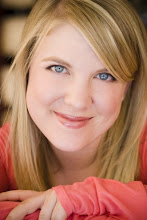Hi.
My name is Liz and I am writing this blog to try to answer the question, "How is performance healing?". I don't begin to have an answer to this question, but since I'm supposed to try and answer it for my midterm project, I'm going to blog about it everyday until the due date, and hopefully beyond. I am a graduate student in New York City studying Drama Therapy.
What the heck is that? I can feel you asking...
WELL, according to the National Association of Drama Therapy, it is defined as "the systematic and intentional use of drama/theater processes, products, and associations to achieve the therapeutic goals of symptom relief, emotional and physical integration and personal growth". What I tell people on the street is that Drama Therapy is using performance and elements of performance as a way of healing. This could mean using role play, storytelling, the integration of puppets, masks, music, art, movement, and anything else you can think of to get people to feel, achieve catharsis, or understand their role(s) in the world... Basically, if you think it might be drama therapy, it probably is.
In my first semester, I'm starting to get a grasp on this question of how performance can be healing, and how it is and has been a healing agent in my own life. The more I think about it, the more I see that (to borrow from one of my favorite movies, "Love Actually"), performance actually IS all around... and it is healing people.
For the purpose of this blog and the purpose of my own understanding, I'm defining performance as anything in everyday or not-so-everyday life that sparks something within, whether it's meant to or not. According to J.L. Moreno (the father of psychodrama), anything that combines spontaneity with creativity is called a conserve. I love the idea that we are walking around all day long everyday having these conserves, from anything like deciding to make something new for dinner, to constructing a colorful e-mail to a friend. Or... creating a blog!
Healing is a little trickier. The definition of healing says, "to make healthy, whole, or sound; restore to health; free from ailment." This sounds pretty straight-forward, but who ever achieves this health and wholeness entirely? I'm sure even the Dalai Lama has issues sometimes. Healing can be physical, emotional, mental, spiritual... Healing is entirely track-able and objective, and purely subjective and personal at the same time. Healing assumes that we are not entirely whole, but always striving to achieve our entire and pure self.
So how do we make sense of all of this achieving wholeness BS?? Well, performance helps... Or I wouldn't be going to school for it.
From now until October 23rd, I will be tracking performance and its healing purpose in everyday life as I experience it. Don't expect any concrete answers though- my professor has been asking himself this question for thirty years! For tonight, I will leave you with this video from the summer that made me cry with joy in the movie theater... I hope it heals you! (see next post)
Making my dreams come true,
liz xo
skip to main |
skip to sidebar

How is Performance Healing? That is the question.
National Association of Drama Therapy
About Me

- lovefromliz
- Hi, I am a graduate student trying to begin to answer the question, "How is Performance Healing?" as I experience it in everyday life. Thanks for reading!
Blog Archive
-
▼
2009
(33)
-
▼
October
(28)
- Amazing Sand Art on Ukraine's Got talent - Kseniya...
- Collage
- "The Imperative in Containing Trauma: Metaphor as ...
- A Happening in the Subway!
- Kandinsky Exhibit
- "By descending down into the depths of the soul, a...
- Van Gogh
- Lauryn Hill 'Selah'
- Flash Mob
- Castle Critters: "Sara Smile"
- Let the Wild Rumpus Start!
- Knock Knock...
- The Laramie project: 10 years later
- Passionate Abandon
- Bye Bye Birdie
- Jeff Buckley - Hallelujah (Live in Chicago 1995)
- Jump!
- Tennessee Williams
- Child on Cross
- Picasso, Cannes
- Mind and Body Connection
- Healing Grief
- Dimming of the Day
- Child Art
- Wedding Bliss
- Happy Feet
- You Make My Dreams Come True
- How is Performance Healing? That is the Question...
-
▼
October
(28)
1 comment:
Thanks for exploring all of your thoughts and opening it up to all of the dt community and beyond, Liz! This is fantastic!
xo,Liz Rubino
Post a Comment